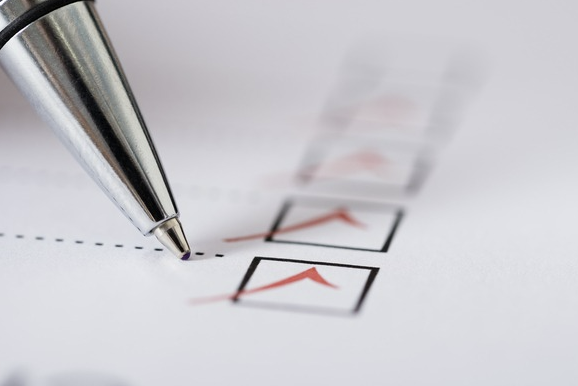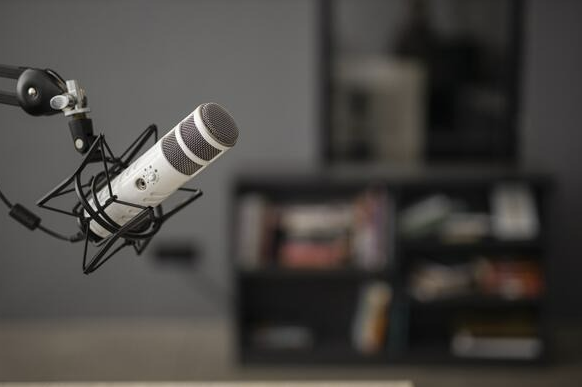
Hello. This is Esther Yeo.
Modern people live with the word tired. No matter how much you rest, no matter how much you sleep, no matter what you eat, no matter what you do, if fatigue persists for more than 6 months, it is called "chronic fatigue" in medical terms.
Did you know that this chronic fatigue is due to brain fatigue?
Your fatigue is brain fatigue,
Brain fatigue is not the same as physical fatigue as we know it.
Physical fatigue refers to fatigue that occurs when you use your body a lot, such as exercising or traveling for the first time in a long time. It's literally exhausting. In this case, rest your body for a while and the fatigue will be restored.
But that's not the case with brain fatigue. Brain fatigue refers to the fatigue that accumulates in the brain. Even if you rest, recovery is not easy. As a result, it affects very important areas of the brain, such as the hypothalamus and basal ganglia.
In fact, when MRI scans of patients suffering from chronic fatigue were performed, the activity of the basal ganglia in the brains of patients with chronic fatigue was significantly lower than in the normal brains [1]. Therefore, the real cause of chronic fatigue is also called brain fatigue.
The brain is working 24 hours a day
So why does this brain fatigue occur? Just as exercising causes muscle pain the next day, the brain gets tired from use.
However, the brain is used to concentrate on studying and working, reading a funny novel, posting on social media, and even while bruising. In other words, the brain is always working.
What's more, when you're stressed, brain fatigue can go to a fever pitch. This is because stress is a very important factor in exacerbating brain fatigue.
Brain fatigue has no symptoms
However, the scary thing is that brain fatigue does not have the same symptoms as physical fatigue. If this brain fatigue is left untreated, it can lead to various problems.
First of all, the secretion of various neurotransmitters and hormones involved in the brain and the nervous system are bound to be abnormal. In particular, there is an imbalance in the autonomic nervous system, which consists of the sympathetic and parasympathetic nerves.
In some cases, the structure of the brain can even be permanently altered. Studies have shown that stress reduces brain volume [2].

Brain fatigue self-diagnosis
At this point, some of you may be wondering if you'll be okay. Check the chart below to see how much brain fatigue you have.
[Yes 2 points, Sometimes yes 1 point]
Sometimes I'm tired of what I do
Lack of efficiency and lack of concentration
They get tired easily and are exhausted on holidays
There are frequent mistakes at work
I don't have good judgment
It's troublesome to go out at work
There are times when I forget my memories
Even if I watch TV or the newspaper, I can't concentrate well
I always feel like I'm being overwhelmed by work
I feel anxious and anxious
I have a headache
Difficulty falling asleep and feeling sleepy during the day
There is stiffness in the neck and shoulders
Cold sweats and cold hands and feet
Eye fatigue
I have a cold
Minor inflammation occurs
You have diarrhea or abdominal pain
My eyes are dizzy and my ears are ringing
It doesn't taste like rice and is difficult to digest
------------------------------
A score of 10 or less – a healthy level
11~20 points – Mild brain fatigue
21~30 points – Moderate brain fatigue
A score of 31 or higher – severe brain fatigue
The Real Reason Brain Fatigue Is Scary
Have you checked it out? Many of you may be surprised that the score is higher than expected. If so, you need to actively manage your brain fatigue from now on. That's because brain fatigue is associated with a lot of diseases.
1) Depression and dementia
The cause of depression is not yet clearly understood, but it is believed to be related to neurotransmitters such as serotonin and dopamine, as well as hormonal abnormalities such as growth hormone. These neurotransmitters and hormones are secreted by the brain, so when brain fatigue accumulates, it is bound to have adverse effects.
In addition, people with depression are more likely to develop dementia. This correlation between depression and dementia has already been demonstrated in many studies [3-5].
2) Anxiety disorders and panic disorders
Anxiety is a very common emotion, but if it is so severe that it interferes with daily life, it is classified as a disease. Patients with anxiety disorders have an overactive sympathetic nervous system, which makes them respond strongly to normal stimuli.
Panic disorder is accompanied by physical symptoms such as rapid pulse and sweating, and is characterized by an extreme fear of dying. Stress and functional and structural problems in the brain are considered to be the causes. Panic disorder patients also tend to overactivate the sympathetic nervous system.
3) Adult ADHD
Recently, there has been a surge in the number of adult ADHD patients. Unlike pediatric ADHD, adult ADHD does not engage in distractible or noisy behavior, but it does cause discomfort in daily life due to attention deficit or impulsivity.
If childhood ADHD persists or has difficulty controlling impulsivity in the absence of other genetic or physiological factors, it may be the result of impaired control of the brain's autonomic nervous system due to brain fatigue.
4) Brainfog
Brain fog has been known as an aftereffect of COVID for a while.
Brain fog literally means a foggy sensation in the head, accompanied by symptoms such as decreased concentration and memory, depression, lethargy, and malaise. Brain fog is also thought to be an autonomic nervous system abnormality, and if left untreated, it is known to increase the risk of dementia.
Brain fatigue, the more dangerous this kind of person is
Just as some people struggle more with the same high-intensity exercise, there are others who have a particularly high level of brain fatigue under the same circumstances. So, who are at risk for brain fatigue?
1) Personality traits: obsession, obsession, perfectionism
People who have high standards for themselves and tend to criticize themselves excessively for their failures are called "perfectionists." These people always think of themselves as inadequate, and because of that, they can't rest when they should be resting. So even though there are red flags of brain fatigue, they're more likely to ignore them.
In fact, studies have shown that people with perfectionist tendencies are more susceptible to depression [6].
2) Stress
When you're stressed, your hypothalamus activates. This hypothalamus sends and receives signals from other parts of the brain, such as the pituitary gland and amygdala. Therefore, prolonged, chronic stress can have a negative impact on the hypothalamus and the brain as a whole.
3) Smartphone addicts
Many people will enjoy looking at their smartphones when they are relaxing. Constant audiovisual stimulation is the main culprit of brain fatigue. All of these stimuli are processed by the brain. Therefore, constantly looking at something on my smartphone is not relaxing, but straining my brain.
4) Cramming
Are you a person who is always pressed for time, or who decides to cram for everything?
There is no habit that is more fatal to brain fatigue than being pressed for time. This is because your heart beats faster and you use up your energy rapidly.

In fact, brain fatigue is very difficult to control. The brain never rests at any moment. However, it is not without a solution.
Earlier, I mentioned that brain fatigue can throw the autonomic nervous system out of balance. If the sympathetic nervous system is overstimulated, you will be in a state of tension and excitement throughout the day. Therefore, balancing the autonomic nervous system can help reduce the effects of brain fatigue.
But how can I control my 'autonomous' nerves with my own will?

The first method I would like to introduce to you is meditation. When we meditate, we breathe deeply and comfortably, which we don't normally do, which calms the sympathetic nervous system and balances the parasympathetic and sympathetic nerves. In addition, it is known that when the brain waves of a person who is meditating are measured, theta waves* are produced well.
*Theta waves: Brain waves associated with physical, emotional, and thinking activities in a quiet state
Of course, for those who are not used to meditation, the process itself can be very difficult. However, it will help if you practice consistently, even if it's just five minutes a day.

Earlier, I mentioned that people who look at smartphones a lot are at high risk for brain fatigue. To reduce brain fatigue, you should stay away from electronic devices.
If you're bored because you don't have anything to do, going for a walk instead of looking at your smartphone is much more beneficial for your brain.

It's also good to sing. First of all, you have to breathe well to sing, and just like with meditation, you get to take deep breaths, proper breaths, which you don't normally do.
It also helps regulate emotions. When you sing, you release good hormones. It releases endorphins, which give you joy and happiness, act as natural painkillers, and oxytocin, which is involved in social bonding and empathy. Studies have even shown that it can alleviate the symptoms of chronic pain in the body [7].
Nutrients that help with brain fatigue
All three of the methods mentioned above have in common a way to clear your head. Clearing your head is easier said than done.
Therefore, so that you can take nutrients to help improve brain fatigue, here are some ingredients that are good for brain fatigue.
1) B vitamins
People who are tired are told to eat high levels of B vitamins. This is because B vitamins are essential nutrients needed for energy production.
In addition, B vitamins are actually essential for the release of neurotransmitters such as serotonin, which is called the happiness hormone.
2) Red ginseng and rhodiola
However, no matter how much B vitamins you take, fatigue may not go away. At this time, many people think of nutritional supplements that have been recognized for their ability to improve fatigue. The most representative ones are red ginseng and rhodiola rosea.
Both red ginseng [8] and rhodiola [9] have been shown to help improve mental fatigue when ingested in human trials. However, the bioactive substances of red ginseng and rhodiola have one drawback.
The Great Barrier, the Blood-Brain Barrier
It doesn't reach the brain directly.
This is because it is blocked by a barrier called the Blood-Brain Barrier (BBB). The blood-brain barrier is a barrier that exists to protect the brain from potentially dangerous substances in the blood, and it is responsible for controlling the passage of only the specific substances needed by the brain from the blood vessels to the brain. In other words, it's the gatekeeper of the brain that identifies a substance and selectively passes through it.
So, what substances can cross the blood-brain barrier? There are several criteria, but once the molecular weight is large, it will not pass.Even if the molecular weight is only 400 Da, it cannot pass through[10] Collagen, which is known as "small molecules," is usually around 500 Da, so small molecule collagen also does not cross the blood-brain barrier.
Therefore, the bioactive substances of red ginseng and rhodiola with more than 400Da, ginsenosides and rosavin, are very unlikely to cross the blood-brain barrier. It's like a camel going through the eye of a needle.

So, is there an ingredient that can directly help with brain fatigue by crossing the blood-brain barrier? Today, we are going to introduce you to SAC.
SAC (S-allyl Cysteine) is found in garlic. Several human trials have demonstrated its effectiveness in reducing physical fatigue as well as brain fatigue [11-18]. It also crosses the blood-brain barrier, making it a small molecule of about 100Da.
Let's take a look at the human trials that have proven the effectiveness of SACs in reducing brain fatigue. When adults between the ages of 25 and 55 were given 2 mg of SAC and were given a computer task that induced brain fatigue, the SAC group showed a significantly lower increase in brain fatigue due to computer work compared to the placebo group after 4 weeks. In other words, it reduced brain fatigue caused by using the brain.
This fatigue-reducing effect of SACs is due to their ability to regulate the autonomic nervous system, preventing the sympathetic nervous system from running over, and to protect the brain from oxidative stress through its powerful antioxidant activity.

When you hear the name SAC, you might think that it looks like an artificially synthesized substance. SAC is a natural ingredient that comes from garlic. However, it is a valuable ingredient that is found in very small amounts in raw garlic, with only a small amount of about 40 mcg per 1 raw garlic.
Therefore, garlic is extracted by fermenting it using a special method. Compared to raw garlic, black garlic has a 500% higher SAC content [19]. Therefore, if you think about the purity of SACs, it is better to eat SACs extracted from fermented black garlic.
Today, we're going to talk about brain fatigue. To make a long story short, brain fatigue is a fatigue caused by heavy use of the brain, and it is not relieved simply by resting.
Therefore, those who have a perfectionist tendency or are under a lot of stress should be especially careful about brain fatigue. .
In order to control brain fatigue, meditation, digital detox, and appropriate exercise are recommended, and it may be helpful to take about 1 mg of SAC a day.




